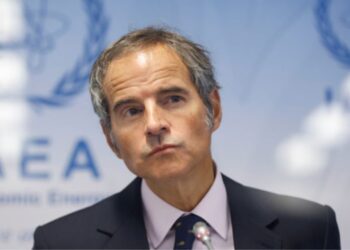Europe wants to contain energy prices. As the energy crisis continues, it is preparing an emergency plan to limit soaring energy prices. This would include separating electricity prices from gas prices. The EU also plans to introduce long-term reforms to further index electricity prices to those of renewable energy.
These measures are intended to reduce the bill for households and businesses. To establish this plan and these new reforms, the energy ministers of the EU countries will meet on September 9.
A tense energy context in Europe
The explosion of the price of electricity in Europe is largely due to the Russian-Ukrainian conflict. In response to Western sanctions, Russia has reduced its gas supplies to Europe. This has had the effect of significantly increasing gas costs. As a result, indexed to fuel prices, electricity costs have themselves exploded.
For Europe and its governments, the reduction of energy supplies is a means of blackmail by Moscow. For its part, Gazprom claims to be a reliable supplier and justifies these reductions by technical problems. Recently, the Russian company announced the cessation of gas deliveries to Engie due to non-payment.
However, the reforms sought by the EU are likely to be complicated and time-consuming to implement. Generally speaking, energy plans are spread over several decades. Indeed, it took two decades for energy trade between member countries to come to an end. However, European policymakers hope to find short-term solutions.
Electricity prices indexed to gas prices
In an effort to establish a common energy market, the EU has ensured that wholesale electricity prices are indexed to gas prices. Apart from gas, the electricity market is powered by wind, solar and coal. Renewable sources are cheaper than coal, which is cheaper than gas. Thus, to encourage the development of renewable sources, it is the gas-fired power plants that set the price of electricity.
Indeed, electricity producers, regardless of the source used, sell their production at the same price. This means that the cheaper renewable energy producers make greater profits. As a result, the higher profit margin achieved should be an incentive to invest even more in the production of renewable energy.
The implementation of this system should thus enable Europe to achieve its climate objectives. Nevertheless, countries such as Spain and Portugal have freed themselves from the European tariff system. For its part, Spain has stated that it finds the system unfair.
Factors in the spike in gas prices
As a result of the reduction in gas export volumes from Russia, fuel prices have soared. This reduction in volumes is pushing European states to source their supplies elsewhere. However, they are in direct competition with other states around the world. This competition then also plays a role in the surge in gas prices.
In turn, the costs of producing electricity from gas have also increased, influencing overall electricity prices.
For Nina Scheer, parliamentary energy spokesperson for the Social Democrats:
“The current market design provides Russia, for example, with a virtual field for destructive market manipulation.”
Another factor that led to an increase in gas prices was the drought that hit Europe this summer. The drought has caused European rivers to drop significantly, hampering hydroelectric power generation and coal deliveries. The low level of the Rhine has caused concern for Germany’s coal supply. Norway is also experiencing difficulties in itshydropower production, due to historically low reservoir levels.
How can Europe contain the price of energy?
Several options are currently being considered to curb rising electricity prices. Ursula von der Leyen said that the EU should separate gas and electricity prices.
For its part, the Czech Republic is in favor of capping the price of gas used in power generation. Spain, Belgium, Austria and Germany are in favor of it. Nevertheless, capping gas prices could encourage greater use of the fuel, thereby limiting the incentive for households and industries to consume less.
France, for its part, is rather in favor of unbundling gas and electricity prices.
In Italy, Mario Draghi has proposed capping the price of gas imported from Russia. However, for the opponents of this option, this would lead to a total cut-off of gas supplies to Europe.
A third option would be to cap gas prices and pay the difference between the capped price and the highest market price. However, Germany and the Netherlands are opposed to this, preferring to subsidize renewable energy rather than fossil fuel production.
Finally, some analysts recommend providing financial support to the most vulnerable households and businesses.






